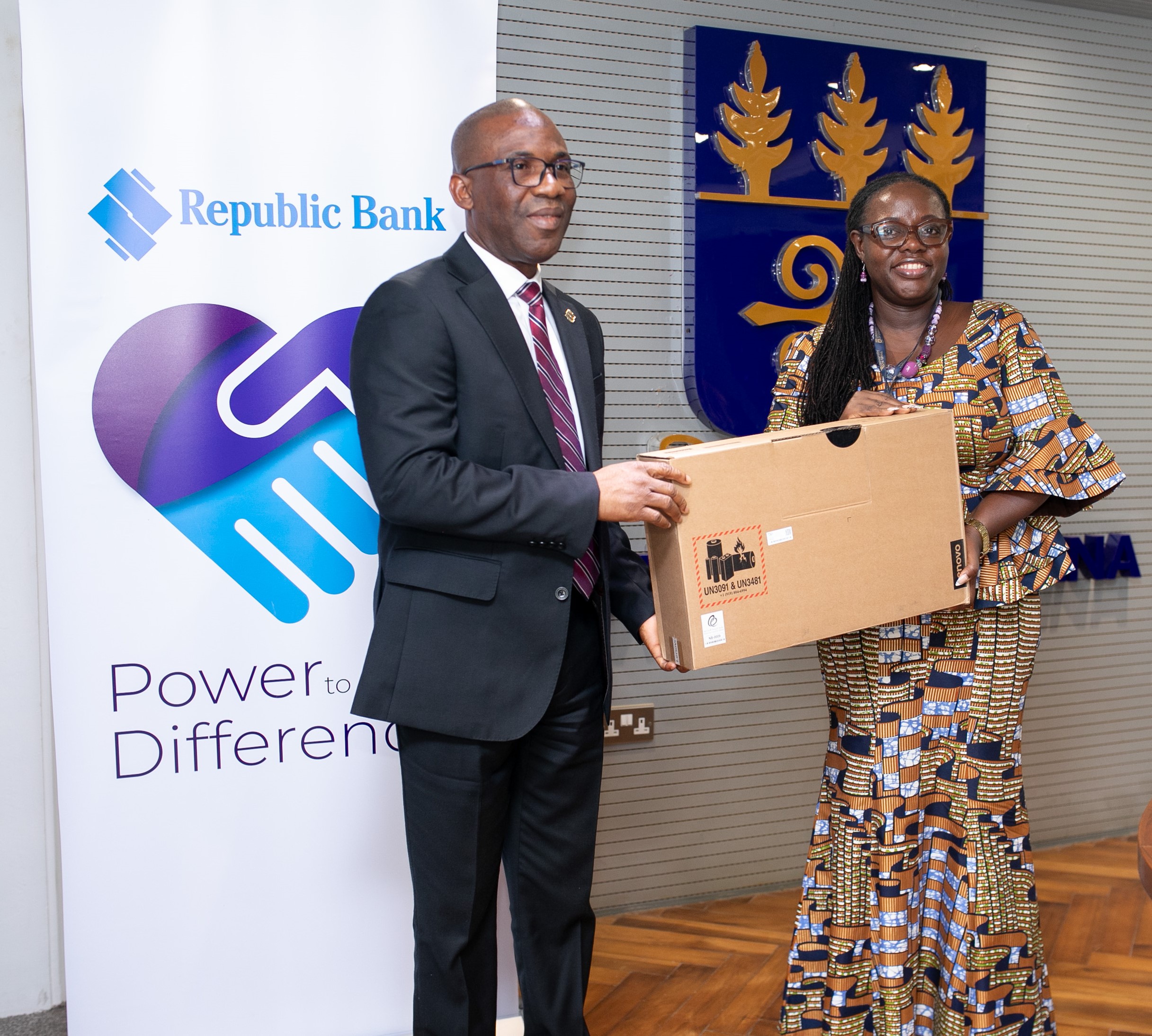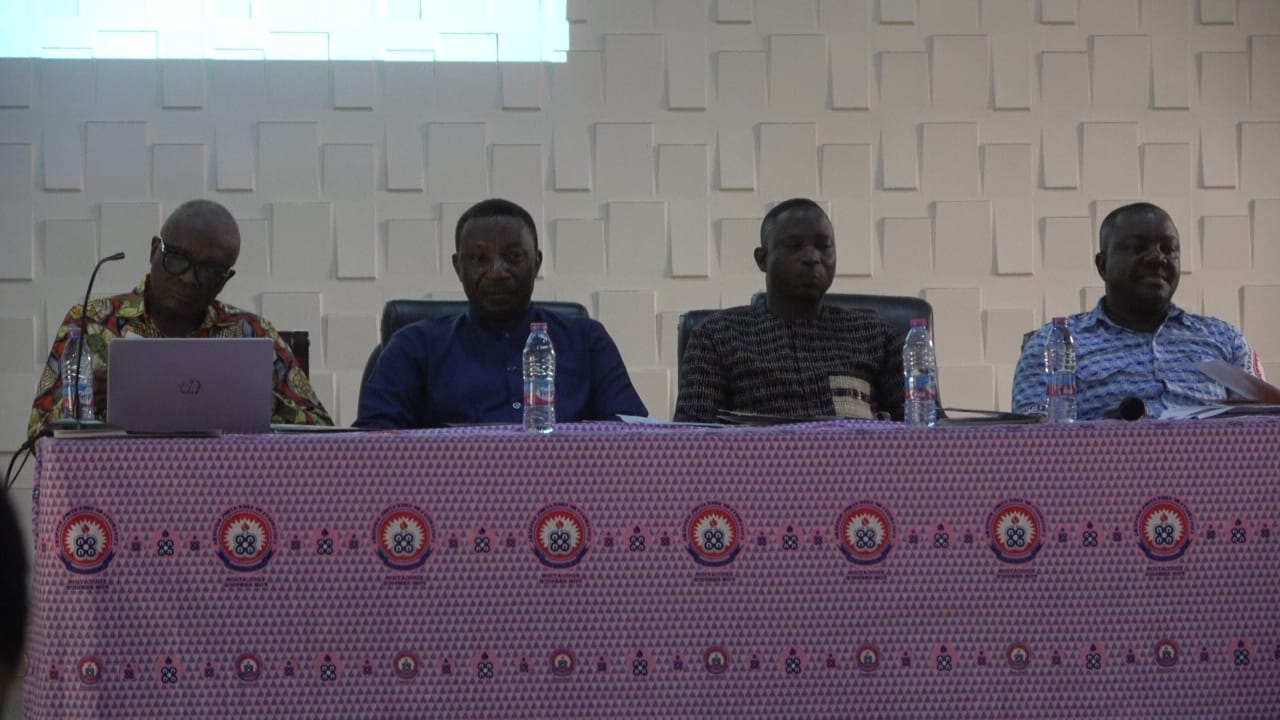
By Amos SAFO
Last week, I was shocked to the core when the whole nation wasted what should have been valuable productive man-hours to discuss the merits and demerits of distributing laptops to students of Senior Secondary Schools.
The unproductive use of the national frequences on both radio and television was equally disturbing because in other jurisdictions national frequency spectrums, which are critical national resources, are used to create and share valuable knowledge for national development. I describe the debate over laptops as needless because our children should have been using laptops and other ICT tools to learn some 30 years ago.
Thirty years ago, children in China, Malaysia, Singapore, Hong Kong, Thailand, Philippines, Egypt, Morocco and Brazil, among others, started providing laptops to their children for research and studies. This means our children are 30 years behind their contemporaries in the countries mentioned earlier.
On March 25, 2024 the government launched an initiative to supply tablets to over one million students as part of plans to enhance teaching and learning. Under the project, the Ministry of Education and Ghana Education Service will distribute 1.3 million educational tablets to students in SHSs. This translates to one student to one tablet under the Ghana Smart Schools Project. The tablets are fitted with digital content to aid research, teaching and learning, President Akufo-Addo said at the launch.
The Ghana Education Trust Fund (GETFUND) is funding the project. According to Education Minister Dr. Yaw Osei Adu Twum, the project has been categorised into three phases; the first 450,000 will be distributed to 32 schools to ensure the effective distribution of a total of 1.3 million tablets.
Obviously, the initiative signals the first phase of digitalising the free Senior High School (FSHS) to enhance teaching and learning, and improve the quality of Ghana’s educational system. Undoubtedly, the ICT system has become necessary to enable our children to fully participate in the fourth industrial revolution, which is about digitalisation and technology.
However, the NDC flagbearer, in an address to tertiary university students at Wisconsin University, claimed that the government’s initiative was designed to convince students who are turning 18 to vote for the NPP in the December polls. “You bring a new curriculum; the children have no textbooks in basic schools for the last four years and you think that giving pre-tertiary students tablets is more important. Of course, everybody knows the political expediency”, the ex-president argued.
Scarcity of textbooks
In a way, Mr. Mahama has a point on the non-availability of some textbooks; however, that in no way should undervalue the provision of tablets to students. This is because tablets have the capacity to accommodate several textbooks and have proven to be very effective as learning materials in the countries as I mentioned earlier. To the extent that the initiative aims to help students to acquire skills in computer literacy and technological know-how, we should encourage it rather than demonising it.
I have also heard complaints by some publishers of books that the initiative will stifle their businesses. Much as their fears have some basis, they should explore the enormous opportunities in e-publishing, which is the new approach in publishing. In the future, majority of printed educational materials will migrate to digital platforms. This is the reality of a fast digitalising world, which appears unstoppable.
Sadly, Mr. Mahama argues that the initiative is nothing short of attempts to induce votes in favour of the ruling party’s candidate, Dr. Mahamudu Bawumia. Ironically, during the 2016 General Elections, the ex-president promised the same tablets to students. If he was not enticing voters in 2016, why is he worried that the current initiative is a vote-buying agenda.
Decolonising our education
Unless we change our mindset over critical national issues other than the craze for power, we are going to remain backward and play second fiddle to our Asian counterparts who appear to have a clearer vision for human resource development. In those Asian countries, human resource development is integrated into their educational curricula to transform their economies, no matter which political party is in power.
In fact, the petty debates over laptops is an indicator that some of our leaders have no clue where the country should be heading regarding education and manpower development. Instead, what should be on radio and television for discussion should be how we can decolonise and dewesternise our education right from basic school to universities.
Decolonisation and dewesternisation constitute attempts to embrace alternative worldviews and radically change the ancient notions of Africa. A key consequence of colonialism is that Western knowledge is presented in educational books as universal. As things stand now, our educational system has failed to help us liberate our minds from colonial mentality.
Today’s Africa is a colonised person, largely because of the failure of education leaders to tailor our education to our local needs. Several years after independence, our education system is still based on colonial concepts and theories with little, if any, introduction of our indigenous cultural and knowledge systems into our educational curricula.
In Ghana, for instance, none of Kwame Nkrumah’s seminal books – ‘Africa must unite’, ‘Revolutionary path’, ‘Towards colonial freedom’, ‘Neocolonialism, the last stage of imperialism’, ‘The struggle continues’, ‘Class Struggle in Africa’, among others – are used as textbooks.
While there may be ideological reasons behind the failure of leaders to incorporate such indigenous knowledge into our education, current developments on the global scene suggest that the African of tomorrow needs this knowledge to free himself from mental slavery. This is what our leaders need to be discussing and not about using laptops to woo voters.
Education indicator of progress
Africa is the only continent which is still tied to its colonial roots in education, economics and politics. Others like China and India have since divested themselves from western economic and educational policies. Among the several factors that are used to evaluate the progress of countries, education stands out. In other words, if one wants to assess the progress of a country, one needs to take a critical look at its educational system. A functional and quality educational system indicates that the country is investing in children and youths, who are the primary beneficiaries of education.
In that regard, the recent investments and prioritisation of STEM and TVET education should have started 30 years ago. Perhaps, if previous governments invested in STEM and TVET education, Ghana would have been producing small machines and basic tools for her industrial needs.
The country would have reduced the importation of cars and trucks from China and South Korea. Over the years, these Asian ‘tigers’ had sustained investments in TVET and STEM to serve their domestic needs. Today, South Korea and China are the two biggest suppliers of trucks, cars and spare parts to Ghana.
In South Korea, for instance, any truck that is ten years old is withdrawn from the system and exported to countries like Ghana. When such cars arrive in Ghana, they are branded as new cars and priced beyond the reach of ordinary people. Whereas these two Asian countries tailored their educational systems to solve their domestic needs, some political leaders are crying foul over government providing tablets for SHS students.
As I illustrated earlier, using tablets for teaching and learning is long overdue. What our political leaders should be debating is how to ensure all students have access to ICT education as an impetus for the country’s industrialisation. We have a huge development gap to fill, compared to our contemporaries in Asia and Latin America.
The post The needless politicisation of laptops appeared first on The Business & Financial Times.
Read Full Story



















Facebook
Twitter
Pinterest
Instagram
Google+
YouTube
LinkedIn
RSS